Leila HADDAD : A major personality committed to the world of oriental dance
Thanks to Leila HADDAD, indisputable pioneer in the Bellydance's field, for all her answers to our interview.
Your Bellydance career is exemplary... Can you tell us about your career's highlights from the birth of your passion until today?

My passion for oriental dance was born with me… What I did not know was that I was going to make it my full-time job, between teaching (so transmission) and performing. I started on stage doing politically committed theater during my years studying literature in the UK. And then this is what led me to create and dance to my own choreographic pieces.
My goal is to bring oriental dance (Raqs el sharqi) into the modern temples which are theatres. I fought like a tigress to finally have this art old of several thousand years recognized in places of culture so it becomes part of the great dance family.
What Bellydance dreams do you still have to fulfill?

My dream remains the same: My peers' recognition, dancers from the classical, contemporary, modern world... We still have a long way to go for oriental dance to earn its stripes.
Even if I have been traveling all over the world for many years, offering choreographic pieces solo and with my dance company, my ambition remains the theater on all world's stages because it is a springboard for my voice to be heard, my Arab/Berber body in the Western world. My choreographic pieces cover various subjects, from poetry to political advocacy.
As an example, "Le ventre de la montagne - Dance with the dreamers" tells the painful story of the African Americans' fight for civil rights, with Dr. Martin Luther King, Malcom X, the Black Panthers, Rosa Park and even Nelson Mandela, fighting apartheid in South Africa. There, we are far from glitter…
It took several decades for contemporary dance to gain full visibility and recognition. I know it will take time for Bellydance to have its rightful place, coming out of the Orientalo-Oriental "ghetto"... to be shown like other dance disciplines.
You have traveled a lot as part of your Bellydance activities. What comparison can you make between the different countries you visited when it comes to oriental dance?

The problem is the same regardless of the country: The non-valorization of oriental dance. Everywhere I hear the same clichés that stick to its skin and note that people still do not consider it as a real discipline in the same way as Western ballet, contemporary dance, Jazz, Baratha Natyam...
A concrete example: When in modern jazz or contemporary dance class, I speak with students and ask them how long they have been practicing. Often the answer is "just 4-5 years". While they have been taking at least 5 to 6 lessons per week for so many years, they are still at the beginner level.
In Bellydance, it's a totally different speech. After a few classes, some workshops, you consider yourself "professional". Of course, I am generalizing… There are dancers who are keen to work on this discipline for a long time in order to evolve.
The problem is not so much the country but rather the mentality which must evolve if we want oriental dance to be taken seriously.
Terms such as dancer, performer, choreographer, should not be misused...
Failure is a part of life. What has been your biggest disappointment so far in your Bellydance career and why?

When I presented my one-hour-and-a half-long political choreographic piece named "Le ventre de la montagne – Dance with the dreamers" to 7 performers. After the performance, I met a few people in the audience who regretted that I didn't dance "balady" or with finger cymbals and who therefore completely missed the theme. I fell sorry for this lack of culture, of openness on a subject as serious as this one. And yet, I proposed an almost didactic staging with videos representing the abuses made against African-Americans by the Ku Klux Klan…
Conversely, what has been your greatest achievement?
My greatest successes have been invited to dance festivals where there was a wonderful panel of choreographers and dance companies from various disciplines. But also to be offered legendary stages all over the world, which leads to a form of recognition for the oriental dance's art that I defend with love, fervor and determination...
Finally, it's when people talk to me about emotion at the end of one of my shows rather than about my Bellydance costume.
What is your own definition of oriental dance?

Before anything else, give it back its real name: "RAQS EL SHARQI" translated into French as "Danse orientale" or into English as "Oriental Dance". The terms "Rock and Roll", "Jazz" or "Baratha Natyam" have never been translated... so why is this colonial and post-colonial label still stuck to our culture?
Which oriental dancers of the new French generation make you shiver and move you?
I confess my complete ignorance on the matter. My sources of inspiration and admiration are in the field of dance in general, whatever the style or origin. Here are the personalities who inspire me: Isadora Duncan, Loie Fuller, Ruth St Denis, Martha Graham, Tahia Carioca, Naima Akef, Samia Gamal, Katherine Dunham, Arthur Mitchell, Bill T Jones, Alvin Ailey…
Discover Leila HADDAD in a video:









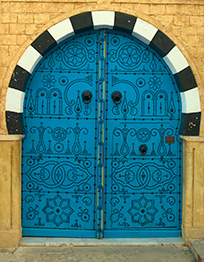





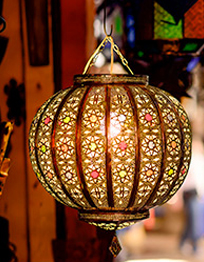


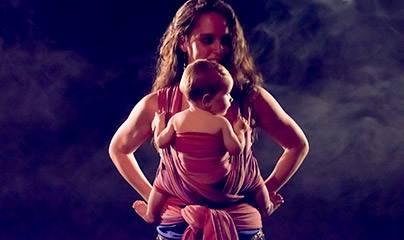
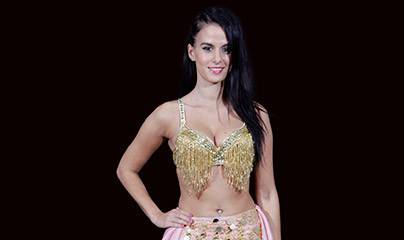
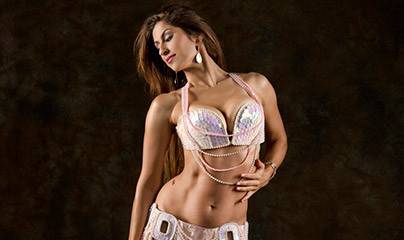
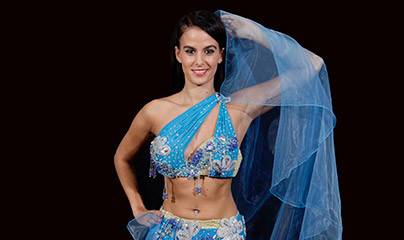
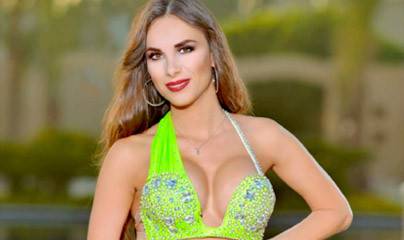
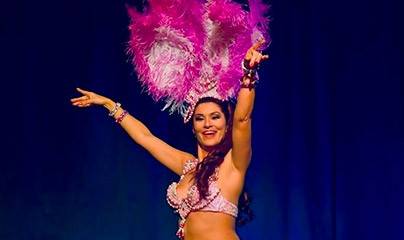
Leave a comment
Login to post comments